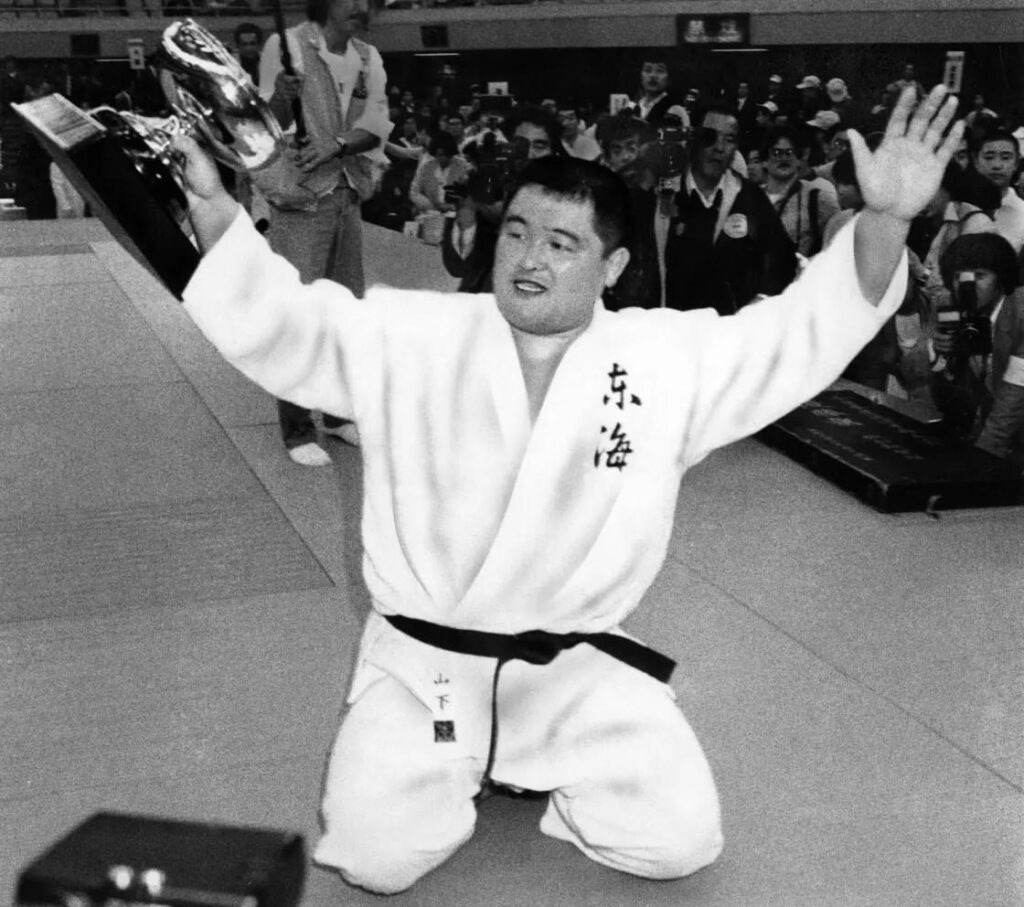
Yasuhiro Yamashita celebrates after winning the All-Japan Championship at Nippon Budokan on April 29, 1985, in Tokyo, Japan. Photo: The Asahi Shimbun
Source: Getty Images
Most people agree that Yasuhiro Yamashita is the best fighter who has ever lived. Being one of the greatest judo masters, he is currently employed by various organizations as a teacher or advisor. On June 17, 1985, he announced his retirement from competitive games after a remarkable career. He amassed 203 straight victories (with seven draws in between) and won five gold medals in international competitions.
At age 19, he became the youngest player to win the All-Japan Championships title in 1977, thanks to his outstanding performance. On October 9, 1984, he was awarded the Japanese National Prize of Honor.
In his only appearance at the Olympics, Yamashita tore a right calf muscle in the preliminary match against Arthur Schnabel. This put Yamashita at a disadvantage since he executed his throws by pivoting his right leg. Though he managed to win the game with an Okuri-Eri-Jime, the injury caused him to limp during the semi-final match against Laurent Del Colombo visibly. Yamashita was thrown with an Osoto Gari only 30 seconds into the game but returned an Osoto Gari and won with a Yoko-Shiho-Gatame (side four-quarter hold). He played the final game against Mohamed Ali Rashwan of Egypt. Yamashita won the last and the gold medal despite his injury. The match witnessed a remarkable fair play act from Rashwan, who did not aim for Yamashita’s right leg. Rashwan was even given an award from the International Fairplay Committee. Here is a YouTube video of his epic 1984 Olympic Gold medal matches.
Yamashita remained undefeated in domestic and international competitions, though he drew several matches with two-time Olympic gold medalist Hitoshi Saito. Yamashita faced Saito in the final game of the All-Japan Judo Championships for three consecutive years from 1983 to 1985 and emerged victorious in every single one of those matches. After suffering numerous injuries throughout his career, Yamashita retired from competitive judo on June 17, 1985, at only 28 years of age.
He reiterates what the founder of Judo, Kano Jigoro-Shihan says: “The ultimate purpose of Judo is the ultimate purpose of the human being, and I consider this to be the fulfillment of the self and benefit to the world.” I live by these words, and I believe these words apply not only to Judo but any other discipline or passion an individual chooses to pursue. I think the fundamental principle is “Judo as human education.” Beyond winning and losing, I truly believe the life lessons through Judo will contribute to building a society full of real winners.
There are no borders, politics, or religion on the tatami- just two athletes testing their skills in the spirit of fair play. Judo is a bridge that connects the world’s people, cultures, and countries.


Leave a Reply